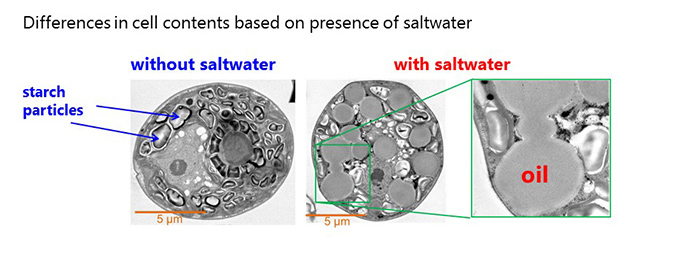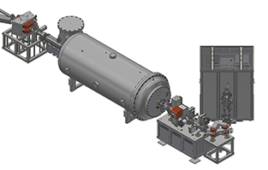
Researchers have utilized a new species of algae in an effort to find a more efficient producer of biofuels.
A group of Japanese researchers has developed a new method to synthesize oil within microalgae cells, which could lead to more efficient biofuel development.
The research, led by Professor Hasunuma Tomohisa and academic researcher Kato Yuichi from the Kobe University Graduate School of Science, Technology and Innovation, found that Chlaamydomonas sp. JSC4, a new species of green algae harvested from brackish water, combines a high growth rate with high levels of lipids.
The researchers developed a new analysis method called dynamic metabolic profiling, which they used to analyze JSC4 and observe how the algae produces oil within its cells.
The researchers incubated JSC4 with carbon dioxide as the sole carbon source, and four days after the start of incubation, over 55 percent of cell weight consisted of a carbohydrate—mainly starch.
The researchers saw a decrease in carbohydrates and an increase in oil when the saltwater was comprised of 1-to-2 percent of the incubation liquid. Seven days after the start of incubation over 45 percent of cell weight had become oil.
The algae has a high cell growth rate, and the lipid production rate in the culture solution achieved a speed that surpassed previous experiments. At the beginning of the cultivation period, starch particles were observed in the cells. However, in saltwater the particles vanished and numerous oil droplets were seen.
Using the newly developed analyzation method, the researchers revealed that the sugar biosynthesis pathway, which is activated when starch is produced, slows down and the pathway is activated for synthesizing triacylglycerol, a constituent element of oil.
They concluded that the addition of seawater switched the pathway from starch to oil production and they also clarified that the activation of an enzyme that breaks down starch is increased in saltwater solution.
Study Applications
The discovery could be used to increase to increase the production of biofuel by improving methods of algae cultivation. The researchers plan on continuing to look for ways to increase sustainable oil production by developing more efficient cultivation methods and through genetic engineering.
Finding efficient biofuels has become particularly important as the amount of biomass on Earth is approximately 10 times the amount of energy we currently consume. About half of this biomass grows in aquatic environments and ocean-based biomass, including microalgae, can produce oil without using up arable land and drinking water.
Microalgae grows with light, water, carbon dioxide and a small amount of minerals and their cells divide quickly, which means they can be harvested faster than land-based biomasses. Algae can also be harvested year-round, which potentially offers a more stable energy supply.
Several species of algae are able to produce large amounts of oil, but the recent study represents the first time researchers have captured the metabolic changes occurring on a molecular level when lipids are produced in algae cells.
The study was published in Scientific Reports.




